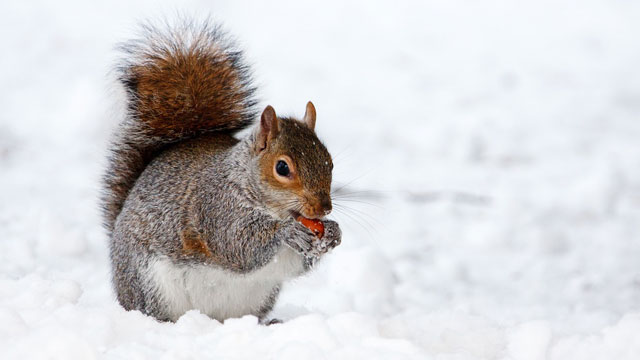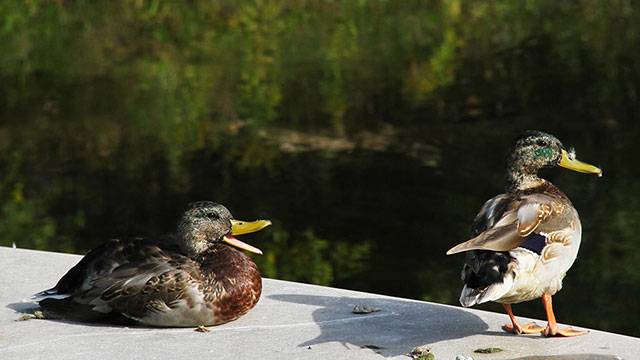
Feeding wild animals: a bad idea!
Lachine Canal National Historic Site
At Lachine Canal National Historic Site, it is illegal to feed, attract or disturb wild animals.
Human food kills wild animals
Feeding wild animals may seem a generous gesture, but it has serious consequences for them and for us. Animals that become accustomed to receiving food from humans can become aggressive when waiting for their ration. This problematic interaction can quickly degenerate into dangerous confrontations.


What's more, animals fed by humans develop a food dependency that reduces their ability to forage naturally. This dependence weakens their survival instinct and their ability to adapt to variations in their environment.
The food given by humans is often unsuited to the animals' nutritional needs, leading to deficiencies and malnutrition. Animals do not receive the essential nutrients required for their health and development.
Another serious consequence is the spread of disease. When large numbers of animals are attracted to the same food source, they congregate in restricted areas, increasing the risk of disease transmission between them. This can lead to devastating epidemics for local animal populations.
Familiarity with humans also makes animals less cautious, increasing their risk of attack. They become easy prey for natural predators and humans alike.
Finally, the increased presence of animals attracted by food can cause nuisance. They can damage property, cause collisions with vehicles or boats, and disrupt cohabitation between wildlife and humans.
For all these reasons, it's crucial not to feed any wild animals. Respecting this rule is essential for their well-being and for the safety of all. Be aware that a fine of up to $100 can be imposed on those who break this rule. Let's protect our wild friends by letting them live naturally, without human intervention.
- Date modified :